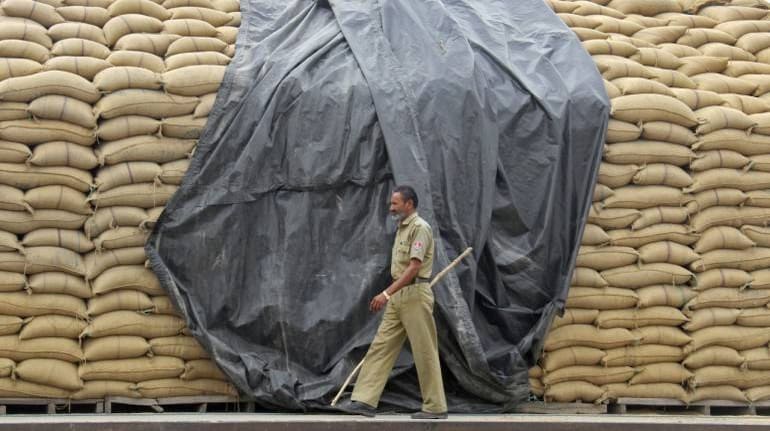



The central sector scheme came along with provisioning for capital grants (matching equity grant up to Rs 15 lakh, 80-100 percent grant for processing units and others) and a Rs 1,000 crore credit guarantee fund operated by the National Bank for Agriculture and Rural Development (NABARD) to meet working capital needs. The initiative created huge interest in rural India. Between 2020 and March 2022, the country added 2,100 new FPOs to take the tally to 7,059. There is no national data on the latest number of producer organisations.
According to a 2018 MicroSave study, 84 percent of FPOs are farmer-producer companies (FPC). To keep big capital out, the individual shareholding in FPCs is capped at five percent and, directors are elected by members. Considering 86 percent of Indian farmers are small and marginal, having less than two hectares each, aggregation holds the key to better margins. But the theoretical advantage faces many practical hurdles.
In The Grip Of a FewFirstly, it is a tall task for a farmer to have entrepreneurial zeal and skill. Most FPOs, therefore, are run or controlled by an energetic few, a maximum of three-four people. Even lenders (rightly) pay weightage to leadership quality. On the flip side, the socialistic framework didn’t leave much scope to reward them beyond the scope of compensating for travel expenses etc. It is, therefore, expected that they are managing (rightful) rewards through other means. The legal framework for FPOs is extremely binding, so much so that it defined the salaries of accountants. However, the authorities were unmindful of the indirect compliance cost that they are imposing on a business-illiterate community. During a recent study in Uttar Pradesh, this author noticed a serious knowledge gap among FPO directors. And when it comes to accounts, they almost blindly depend on auditors, some of whom handle hundreds of FPO accounts each. This hurts producer organisations in many ways. First, the auditor charges a hefty fee. In UP, auditing fees at about Rs 40,000 account for roughly three percent of an average FPO’s turnover of Rs 14.5 lakh. Low CreditworthinessSecondly, to cover weaknesses in bookkeeping, FPOs give preference to cash. The auditor pulls out a balance sheet that passes mandatory legal scrutiny. But, lack of money trail makes lenders suspicious. And so, the creditworthiness of FPOs suffers. While banks are yet to show a willingness to lend in this space, poor credit rating deprives FPOs of the benefit of cheap working capital finance (at roughly 10 percent interest) from Nabkisan, a NABARD subsidiary. The gap is filled by non-banking finance companies – like Samunnati, Ananya – that are doing a great job by extending loans to the less-bankable majority. But they are charging a 50 percent premium (15 percent interest) over Nabkisan.That’s not all. Corporate buyers like ITC, FarMart, etc give better rates. However, with Agriculture Produce Marketing (Regulation) Act (APMC) in place, FPOs pay 1.5 percent mandi tax on such deals. The APMC license is available at a bribe of Rs 20,000 (1.3 percent of average turnover). Organised buyers pay up to two percent commission to help FPOs recover the tax and transport costs. Farmers lose the potential to extract better value.
Unviable PropositionTo sum up, a nascent FPO is paying 3-4 percent of its turnover for various compliance and 15 percent and above as interest for working capital. Moreover, it must scale up rapidly to enjoy the full benefits of the central scheme. Is it possible to generate a margin that can justify such costs and ensure growth as well? Not from the aggregation business, which is the mainstay, though processing facilities can do. But very few FPO have such facilities. Ground experience shows that many processing facilities are suffering from low utilisation either due to a lack of planning or inadequate access to working capital.There is no national data on the financial health of FPOs. A Grameen Foundation report on 40 organisations in UP shows that the majority reported less than one percent profit on turnover. Many earned barely a few thousand rupees. Another agency working in multiple states confirms the trend. More Intervention NeededIn many ways than one, farmers became a prisoner of the prevailing ecosystem and their lack of knowledge. They need a supportive ecosystem and handholding to overcome their weaknesses. The Centre for Digital Financial Inclusion (CDFI) conducted a financial inclusion project with 20 FPOs each in UP and Tamil Nadu. Sponsored by the Ministry of Electronics and Information Technology (MeitY), the CDFI project achieved 36 percent cashless transactions in input trade in UP FPOs and 49 percent in Tamil Nadu. It is time to extend the coverage of such projects to help FPOs improve their credit rating. It is also important to enhance the supply of cheap credit. Right now, Nabkisan has 50 plus accounts in UP as against 150 plus of Samunnati. This should change.The biggest intervention is required in agri-logistics. Leave alone transport logistics, there is barely any affordable insurance for the transport of agri-produce. Aggregation of horticulture requires storage. Laws and lobbies prevent FPOs from storing food grains for better pricing opportunities or to get a better deal from the transporter. Big projects will not serve the purpose. Low-cost micro-solutions and legal flexibility can break the stronghold of lobbies. If farm laws cannot be reformed, FPOs should be given a level playing field.
Pratim Ranjan Bose is an independent columnist, researcher, and consultant. His Twitter handle is @pratimbose. Views are personal, and do not represent the stand of this publication.Discover the latest Business News, Sensex, and Nifty updates. Obtain Personal Finance insights, tax queries, and expert opinions on Moneycontrol or download the Moneycontrol App to stay updated!
Find the best of Al News in one place, specially curated for you every weekend.
Stay on top of the latest tech trends and biggest startup news.